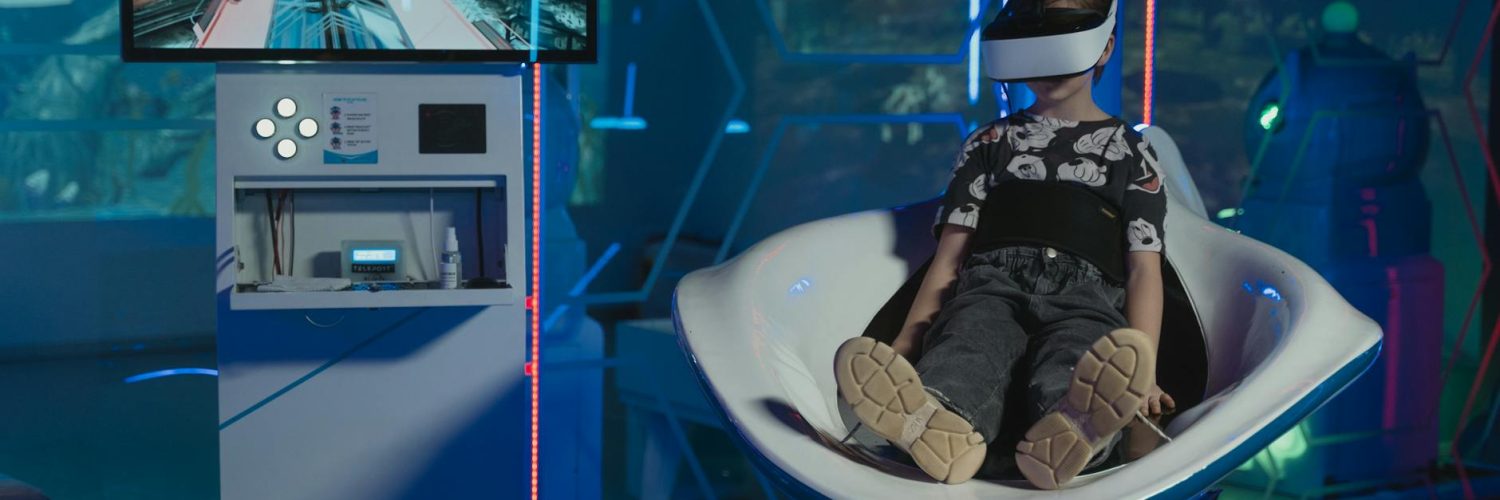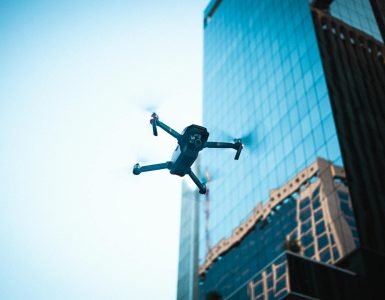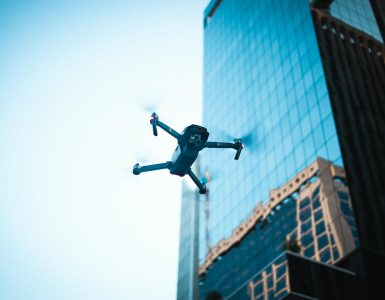¿Recuerdas aquellos aparatosos teléfonos móviles de principios de la década de 2000? Predecir la revolución de los smartphones por aquel entonces podía parecer pura ciencia ficción. Hoy, sin embargo, estamos rodeados de una tecnología que habría hecho volar las mentes de escritores como Julio Verne o Isaac Asimov. Resulta que la ciencia ficción no es sólo evasión, sino una bola de cristal sorprendentemente precisa que se asoma a un futuro que se está convirtiendo rápidamente en nuestro presente. No se trata de viajes en el tiempo o invasiones alienígenas (aunque ¿quién sabe?), sino de la tecnología cotidiana que difumina las fronteras entre fantasía y realidad.
El auge del metaverso personalizado
La ciencia ficción lleva mucho tiempo explorando mundos virtuales inmersivos y, aunque todavía no vivimos en *Ready Player One*, el metaverso está evolucionando rápidamente. Olvídate de los aparatosos cascos de realidad virtual; piensa en unas ligeras gafas de realidad aumentada que superponen información digital al mundo real. Imagina ir por la calle y ver reseñas de restaurantes proyectadas en los edificios, u obtener traducciones en tiempo real de conversaciones con personas de distintos países. No se trata sólo de jugar, sino de transformar nuestra forma de interactuar con la información, entre nosotros y con el mundo físico. Piensa en experiencias personalizadas de realidad aumentada adaptadas a tus intereses, desde visitas históricas interactivas a experiencias de compra personalizadas en las que puedes probarte virtualmente la ropa antes de comprarla.
Las tendencias actuales en personalización impulsada por IA ya están allanando el camino. Los algoritmos aprenden nuestras preferencias, nos recomiendan productos e incluso personalizan nuestras noticias. ¿El próximo paso? Unas gafas de realidad aumentada que integren a la perfección estas experiencias personalizadas en nuestra vida cotidiana, creando una realidad adaptada a cada individuo.
Un mundo feliz para la biotecnología
La ciencia ficción siempre se ha interesado por el potencial de la biotecnología, desde la ingeniería genética hasta la mejora de las capacidades humanas. Aunque no estamos creando supersoldados (¡todavía!), los avances en la tecnología de edición genética como CRISPR son asombrosos. Ya estamos viendo las primeras aplicaciones en el tratamiento de enfermedades genéticas, y el potencial de la medicina personalizada -tratamientos adaptados a su composición genética única- es enorme. Imaginemos un futuro en el que podamos eliminar genes relacionados con enfermedades antes incluso de que se manifiesten, o mejorar nuestras capacidades naturales de forma controlada y ética. Esto plantea profundas cuestiones éticas, pero las posibilidades tecnológicas son innegablemente apasionantes.
Más allá de la edición genética, los avances en prótesis y biónica están difuminando las fronteras entre humanos y máquinas. Estamos pasando de los simples sustitutos a dispositivos que se integran a la perfección con el sistema nervioso, proporcionando capacidades sensoriales mejoradas o incluso restaurando miembros perdidos con una funcionalidad casi perfecta. Estos avances no son sólo reparadores, sino que abren las puertas al aumento, planteando cuestiones sobre la naturaleza de la humanidad y la definición misma de lo que significa ser humano.
IA: nuestro útil (y potencialmente aterrador) asistente
Olvídese de la imagen hollywoodiense de robots que se alzan contra la humanidad. La realidad de la IA tiene muchos más matices y está más integrada en nuestra vida cotidiana de lo que muchos creen. Desde los algoritmos que gestionan tus redes sociales hasta los asistentes de voz que gestionan tu hogar inteligente, la IA ya está profundamente integrada en nuestro ecosistema tecnológico. El futuro nos depara una integración aún más profunda: Asistentes personales dotados de IA que se anticipen a nuestras necesidades, gestionen nuestros horarios con una eficiencia sobrehumana e incluso ofrezcan apoyo emocional. El potencial para mejorar la asistencia sanitaria, aumentar la productividad e incluso la creación artística es asombroso. El concepto de esfera de Dyson
Sin embargo, las consideraciones éticas son primordiales. La parcialidad de los algoritmos, el desplazamiento de puestos de trabajo debido a la automatización y el posible uso indebido de los potentes sistemas de IA son preocupaciones legítimas que deben abordarse. Un futuro en el que la IA ayude a la humanidad requiere una planificación y regulación cuidadosas, que garanticen que sirve a las necesidades y valores humanos de forma ética y responsable.
Soluciones sostenibles: Una necesidad, no un sueño de ciencia ficción
Muchos relatos de ciencia ficción exploran temas como el colapso medioambiental y la necesidad desesperada de soluciones sostenibles. Aunque los escenarios apocalípticos siguen siendo un cuento con moraleja, el actual impulso hacia las energías renovables y la conciencia medioambiental está directamente influido por la concienciación que despiertan estos relatos de ficción. El futuro dependerá probablemente de nuestra capacidad de transición hacia un modelo sostenible. Ya estamos viendo avances en energía solar, eólica y otras tecnologías verdes. El próximo salto puede implicar avances en el almacenamiento de energía, la captura de carbono e incluso, potencialmente, técnicas de geoingeniería, todas ellas ideas anteriormente relegadas al ámbito de la ciencia ficción.
Imagina ciudades alimentadas por energía limpia, con granjas verticales que proporcionan alimentos de origen local y redes inteligentes que optimizan la asignación de recursos. No se trata sólo de salvar el planeta, sino de crear un futuro más resiliente y equitativo. Los retos son inmensos, pero las posibles recompensas -una civilización humana sostenible y próspera- hacen que el esfuerzo sea absolutamente crucial.
Exploración espacial: La próxima frontera
El sueño de la exploración espacial sigue siendo una poderosa motivación que inspira innumerables historias de ciencia ficción. Aunque los viajes interplanetarios siguen siendo un reto importante, los avances en la tecnología de los cohetes, las naves espaciales reutilizables y el aprovechamiento de los recursos espaciales nos están acercando a la realización de este sueño. El impulso actual a la exploración espacial privada, unido a ambiciosos programas gubernamentales, indica un compromiso creciente con la exploración y posible colonización de otros cuerpos celestes. No se trata sólo de plantar una bandera, sino de asegurar el futuro de la humanidad yendo más allá de un planeta único y vulnerable.
Imaginemos la posibilidad de explotar asteroides en busca de recursos valiosos, de crear bases lunares que sirvan de plataforma para la investigación científica y, potencialmente, para el turismo espacial, y quizá, algún día, de establecer colonias autosuficientes en Marte. Estas empresas plantean importantes retos -el coste, los riesgos y las implicaciones éticas de la colonización planetaria-, pero la exploración y expansión de la humanidad en el cosmos es una visión poderosa con consecuencias de largo alcance.
Conclusiones: El futuro se está escribiendo
La línea que separa la ciencia ficción de la realidad se difumina constantemente. Muchas ideas que antes se limitaban a las páginas de los libros y a la gran pantalla se están convirtiendo rápidamente en parte de nuestra vida cotidiana. El futuro no está predeterminado, sino que depende de nuestras decisiones y de los avances tecnológicos. Si comprendemos el potencial de las tecnologías emergentes y afrontamos con responsabilidad los retos éticos que plantean, podremos trabajar por un futuro que se ajuste a nuestras esperanzas, no a nuestros temores. La visión de ciencia ficción, con todos sus elementos fantásticos, ofrece una hoja de ruta vital para navegar por las incertidumbres y oportunidades del mañana.

























Añadir un comentario